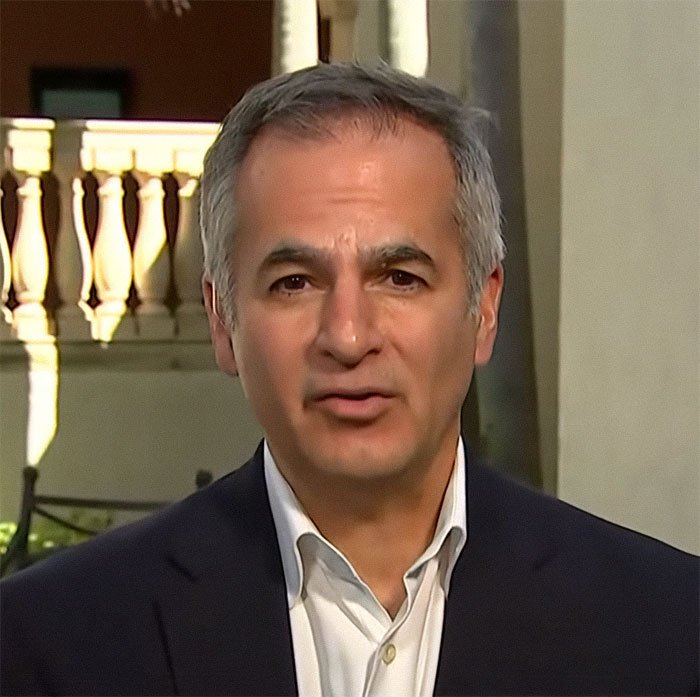Rising grocery costs have become a concern for many consumers, leading to discussions about affordable dining options. Gary Pilnick, CEO of WK Kellogg, recently suggested a money-saving tip during an interview with CNBC’s “Squawk on the Street”: eating cereal for dinner. The recommendation comes at a time when spending on food is taking up a larger portion of people’s income than it has in the last 30 years, according to the US Department of Agriculture.
Pilnick’s remarks drew criticism online, with some questioning the appropriateness of promoting cereal as a dinner choice for families caught in a financial bind due to escalating food prices. Despite the backlash, Pilnick defended his stance, emphasizing the cereal’s affordability compared to other food options and its appeal to consumers looking for budget-friendly alternatives during financial struggles.
Are the costs getting to you at the grocery store? Gary Pilnick, CEO of WK Kellogg, offers a simple money-saving tip: eat a bowl of cereal for dinner.
Its ad comes at a time when consumers are spending more of their income on food than in the previous thirty years.
In an interview with CNBC’s “Squawk on the Street” on Wednesday (Feb. 21), Pilnick made the controversial remark.
Based on the latest data available from the U.S. Department of Agriculture, the CEO of Kellogg — which makes brands like Frosted Flakes, Froot Loops, Corn Flakes, and Raisin Bran — was asked about rising food costs and how more than 11% of disposable consumer income is spent on food.
Online criticism was directed at WK Kellogg CEO Gary Pilnick’s advice to families struggling financially due to rising grocery costs.
“The cereal category has always been relatively affordable and tends to be a great destination when consumers are under pressure,” Pilnick said.
“If you think about the cost of cereal for a family compared to what they could do otherwise, it makes it much more affordable,” he said.
“We’re discussing the importance of having the right package in the right place at the right price. So offering a different size package at a different price will take some of the pressure off consumers.”
Pilnick launched a marketing effort promoting the cereal as an inexpensive dinner option.
The cereal firm’s CEO also mentioned how cheap a bowl of cereal is compared to other, luxury foods, and how attractive it is to customers as a cheap dinner alternative during the financial crisis.
“Generally speaking, many people can visit the cereal category because a bowl of cereal with milk and fruit costs less than $1.
“So you can imagine why a consumer under pressure might find that it’s a good place to go.”
Asked whether the dinner cereal push could “land the wrong way,” Pilnick declined to comment.
“It’s actually landing really well right now,” he said. “Cereal for dinner is something that is probably more on trend now and we would expect [the trend] to continue because the consumer is under pressure.”
“The cereal category has always been relatively affordable and tends to be a great destination when consumers are under pressure,” said the president and CEO.
In a 2023 Kellogg ad titled “Enjoy Kellogg’s® Cereal for Dinner”, the company’s mascot appears in a family’s home while they sit at the table discussing what to have.
“You say dinner when I say cereal. Cereal!” screams the tiger and the family members chant back. The mother then tells the chicken in the background that she can have a “night off”.
We have an idea you should try if you’re tired of making chicken all the time and the kids are getting tired of it too. “You have to try it – forget it,” says the video’s caption. “Turn off the stove, open the pantry, and pour your favorite Kellogg’s® cereal for dinner!”
“If you think about the cost of cereal for a family compared to what they could do otherwise, it makes it much more affordable,” he said.
Food and restaurant prices have increased dramatically since the start of the pandemic. Americans will spend 11.3% of their disposable income on food in 2022, the highest amount since 1991, the Wall Street Journal reported last week, according to data from the U.S. Department of Agriculture.
The Bureau of Labor Statistics reports that grain prices have risen 28% since January 2020. The last fiscal year saw a 12% price increase from Kellogg.
Since the start of the pandemic, food companies have raised their prices in response to increased labor, ingredient, and transportation costs.
Besides, the reason they don’t lower prices is because they don’t have to.
Social media users are debating the clip of the interview, calling Pilnick’s campaign “tone deaf.” Many argued that he would not follow his own advice due to the low nutritional value of cereal for dinner.
Someone on X (formerly known as Twitter) wrote that “greed is forcing families to make decisions like eating cereal for dinner to save money.” “Kellogg’s CEO brags about it as he points to the company’s surge in profits that contributed to the initial development of the problem. F—this.”
Watch the interview below.
Someone commented, “He’s using this as an opportunity to push his product.”
At the end of the most recent quarter, on December 30, the company reported net sales of $651 million.
One TikTok user said, “This is what they think of you [the company],” while another user replied, “#CorporateGreed.”
Another person shared his first-hand knowledge when he said, “As a college student who ate cereal for dinner… it doesn’t fill you up.”
Another person commented: “You don’t need as much sugar before bed and cereal isn’t cheap anymore.”
“Meanwhile, he eats at five-star restaurants every night, and when he’s not there, his personal chef prepares dinner for him,” another commenter said.
Absolutely repulsive.”
“I’m not going to start eating mountains of sugar and carbs for dinner,” commented a reader.
Anyone can post on Bored Panda. Get writing!
The recent controversy surrounding Kellogg CEO Gary Pilnick’s suggestion that low-income families eat cereal for dinner has sparked widespread debate and criticism. Pilnick’s comments, made during an interview with CNBC’s “Squawk on the Street,” were seen by many as insensitive and out of touch with the financial issues facing many households.
Pilnick’s promotion of cereal as a low-cost dinner option comes at a time when food prices are rising, leading consumers to spend a higher percentage of their disposable income on food. This trend was reinforced by the pandemic, which saw a significant increase in food and restaurant prices.
While Pilnick emphasized the affordability of cereal compared to other food options, critics pointed to the nutritional concerns associated with relying on cereal as a primary dinner choice. Some social media users expressed frustration at what they perceived as corporate greed prioritizing profit over people’s well-being.
The reaction to Pilnick’s remarks reflects broader concerns about the rising cost of living and the challenges facing families trying to make ends meet. As discussions about food affordability and availability continue, Pilnick’s comments serve as a reminder of the complex dynamics in the food industry and the importance of addressing the needs of all consumers, especially those facing financial hardship.















